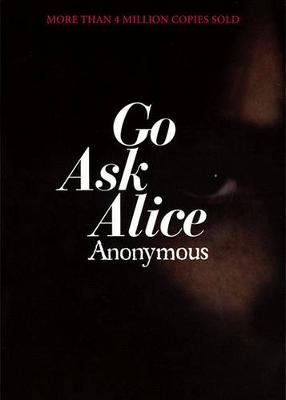Reviewed by Whitney @ First Impressions Reviews on
Alice is your typical teen aged girl. She worries that she is too fat. She wants a boyfriend: "I wish I were popular and beautiful and wealthy and talented." She frequently makes resolutions in her diary to do better in school, work toward a better relationship with her mother, and lose weight. Her life changes when she goes to a party and is given acid in her drink. She loves the feeling the drug gives her: "I could smell it and touch it and feel it as well as hear it. Never had anything ever been so beautiful."
I first read this at thirteen, just a few years younger than Alice. I was appalled and absorbed by this novel at the same time. Now fifteen years later, I am just as appalled and absorbed but now see the dept and sorrow of this short life. Between the bleakness, I could see sparks of light trying to break through, but never quite reached the surface.
Alice writes several times about streaking her diary with tears and I almost did the same while reading this short book. A vivid description of life on the streets and the constant dislike of what she had become was heart breaking. Who knew a 200 page book could be so emotionally draining?
Like Anne Frank's diary is to the Holocaust, Go Ask Alice is a testament to the powers of addiction and should be a book everyone reads at least once.
EDIT:
After writing this review and reading several thought provoking comments, did some research on the authenticity of Go Ask Alice and the general conscience is that it is a work of fiction. Looking back, I realize how obvious it is, like James Frey's "Million Little Pieces". Remember the Oprah scandal? While reading both A Million Little Pieces and Go Ask Alice I thought they were too unbelievable to be real. As the saying goes, if it's too good to be true than it probably is (only substitute good for bad).
In hindsight, how could Alice remember in clarity her thoughts and actions during an LSD trip? In general, the cohesiveness of the plot under the current circumstances seemed too tidy. Lastly, like in "A Million Little Pieces" his love interest Lily conveniently hangs herself the day James is released and in Go Ask Alice, the subject dies three weeks after deciding to stop keeping a diary. If there is any truth to this novel, was it just fate that Alice stopped her diary or did Beatrice Sparks decide that was a good stopping point?
I still stand by what I said, fiction or no this still leaves the reader with a haunting message on drugs -- Just say no.
Reading updates
- Started reading
- 3 April, 2013: Finished reading
- 3 April, 2013: Reviewed
